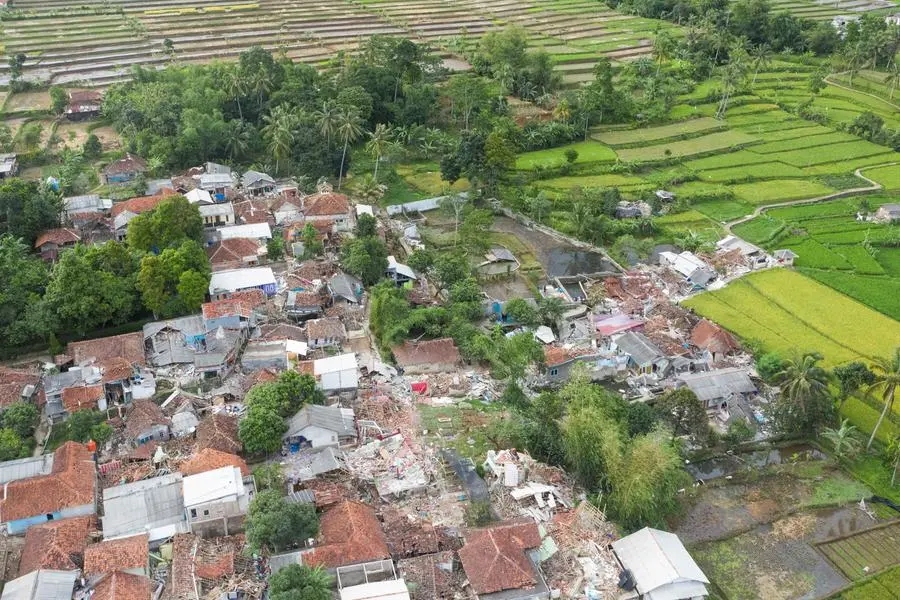PHOTO
CIANJUR, Indonesia: Helicopters will drop relief supplies on Wednesday to Indonesian villagers stranded after an earthquake crumpled homes in West Java, while others waited apprehensively to learn the fate of missing relatives.
The death toll from Monday's 5.6-magnitude quake in the town of Cianjur has risen as the scale of the disaster unfolds, with 268 officially confirmed dead, up from about 160 a day before, and more than 150 missing.
Wednesday's recovery efforts will focus on Cugenang, one of the worst-hit districts, where at least one village is believed to have been buried under a landslide, while helicopters will drop emergency supplies to two more cut off by blocked roads.
As authorities prepared to bring in more heavy machinery to clear the landslides, video images showed people digging the earth with their bare hands and tools such as hoes, sticks and crowbars.
"If it was just an earthquake, only the houses would collapse, but this is worse because of the landslide," said Zainuddin, who was searching for six missing relatives.
"In this residential area, there were eight houses, all of which were buried and swept away."
More than 1,000 police officers have been drafted in to help rescue teams.
Rescuers are desperate to reach those trapped as soon as possible, said Henri Alfiandi, the chief of the search and rescue agency, who warned that chances of survival start to fade three days after a quake.
Helicopters will drop food and water to two villages that could not be reached by road, he said.
The mountainous terrain makes it difficult to deliver aid, forcing officials to trudge to the affected villages, said West Java Governor Ridwan Kamil.
Indonesia is one of the world's most earthquake-prone nations, regularly recording stronger offshore earthquakes.
But Monday's quake, followed by more than 160 aftershocks, was made more deadly because it struck a densely populated area at a shallow depth of just 10 km (6 miles).
Poor building standards led to many deaths, officials added.
President Joko Widodo called for earthquake-proof housing to be included in reconstruction efforts, during a visit on Tuesday to the town, about 75 km (45 miles) south of Jakarta, the capital.
There was an urgent need for immediate surgery as quake-damaged hospitals had limited capacity, Health Minister Budi Gunadi Sadikin said.
"My priority is no more deaths," he said. "The first priority is to make sure that badly injured patients are being taken care of, so they can survive."
(Writing by Kate Lamb; Editing by Ed Davies and Clarence Fernandez)





















